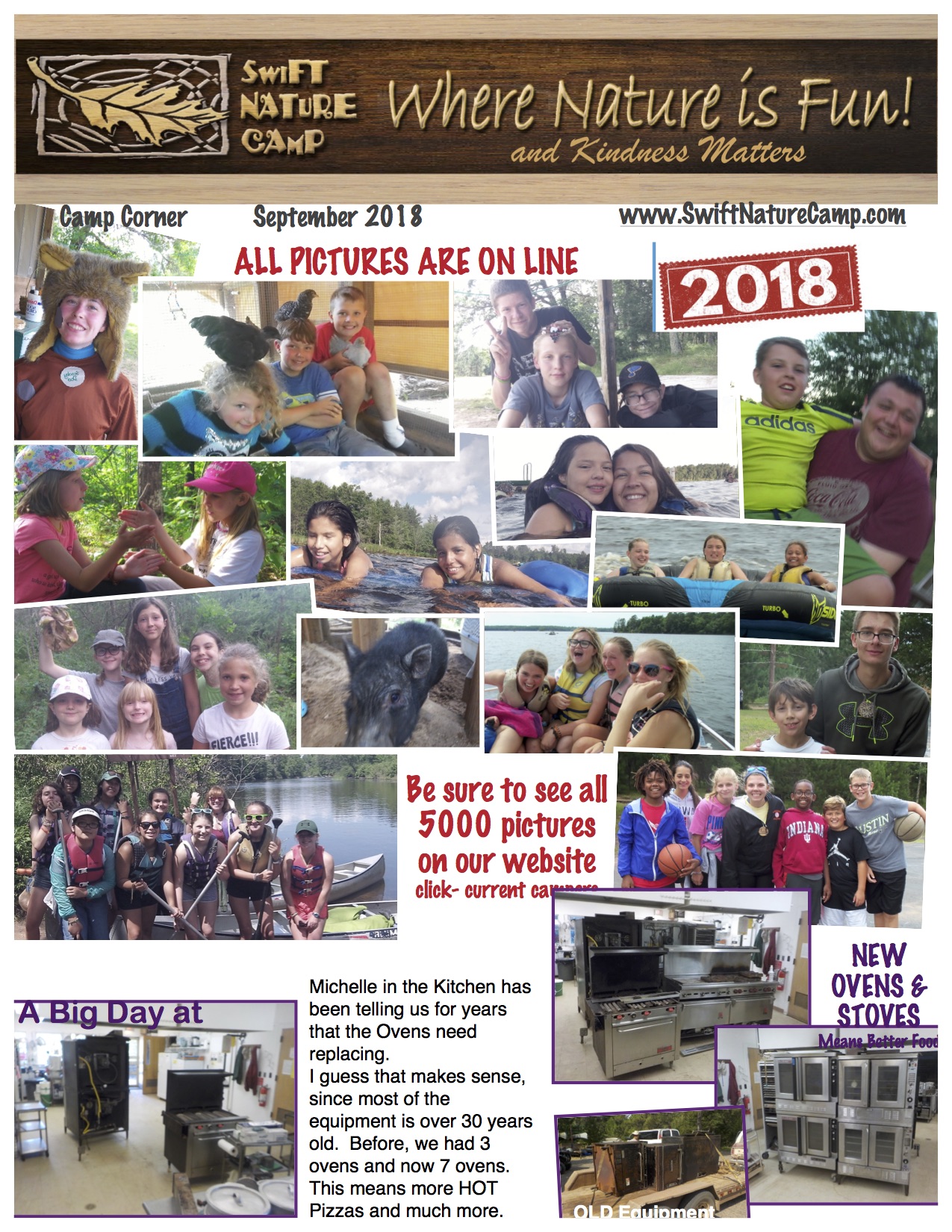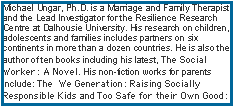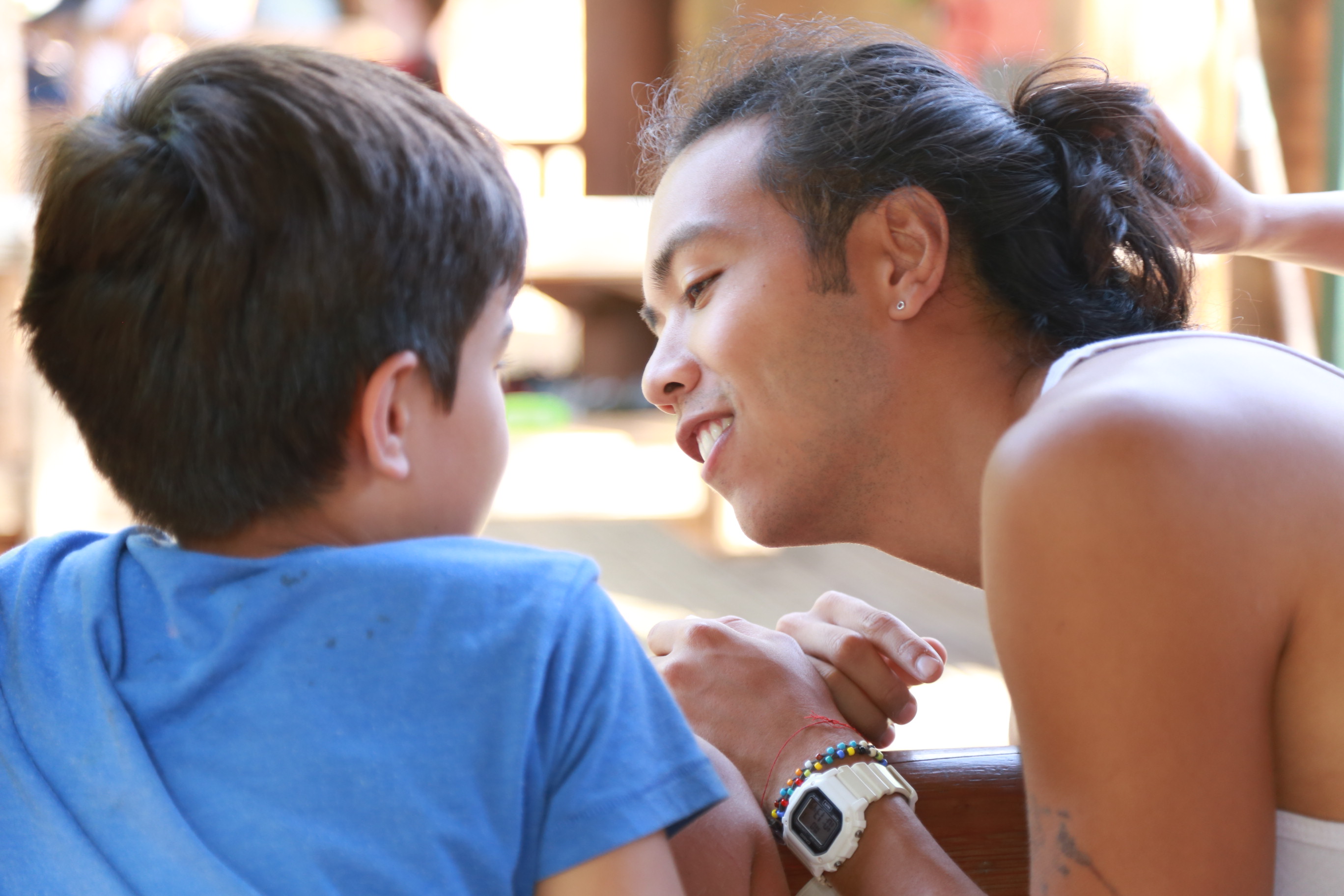

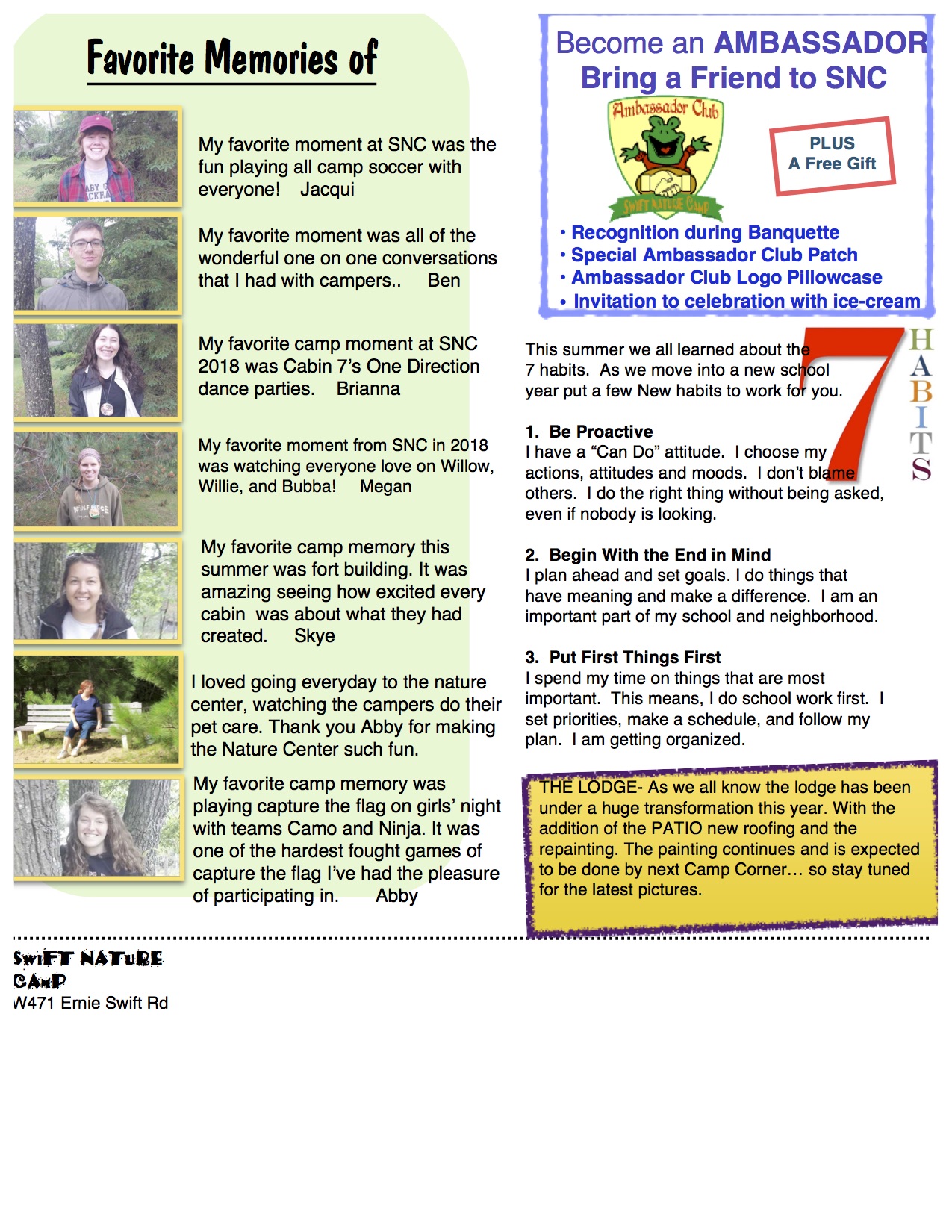
Hope it isn’t too late to be in the newsletter!! One of my favorite camp memories is at the end of each session, during final campfire, when everyone is so excited and runs up to join me in singing songs! It makes me feel loved and like all everyone loves camp as much as I do! ?
Thanks!! Christy
Summer Camps Make Kids Resilient
I recently spoke to 300 camp directors about how to make children more resilient to life stress. Summer camps, we discovered, are perfect places to help children optimize their psycho-social development.
After all, summer camps are places where children get the experiences they need to bolster their range of coping strategies. There are the simple challenges of learning how to build a fire, going on a hike, or conquering a high ropes course. There are the much more complex challenges of getting along with a new group of peers, learning how to ask for help from others, or taking manageable amount of risks without a parent following after you.
The best camping experiences offer these opportunities for manageable amounts of risk and responsibility, what I term "the risk takers advantage" (see my book Too Safe for Their Own Good for more examples). The worst camps pander to children as if they are entitled little creatures whose parents are paying big sums of money. Children at camp can't be treated like customers if they are going to get anything out of the experience. They need to be treated like students whose caregivers, the counselors, know what the kids need to grow.
Camps that pull this off and make kids, especially teens, put away the makeup, stash the iPods, get a little dirty and even a little frustrated while having fun and making new friends, are the kinds of camps that offer children the best of what they need. Looking at those experiences from the vantage point of my research on resilience, I know that camps help our children develop great coping strategies when they provide seven things all children need:
1) New relationships, not just with peers, but with trusted adults other than their parents. Just think about how useful a skill like that is: being able to negotiate on your own with an adult for what you need.
2) A powerful identity that makes the child feel confident in front of others. Your child may not be the best on the ropes course, the fastest swimmer, or the next teen idol when he sings, but chances are that a good camp counselor is going to help your child find something to be proud of that he can do well.
3) Camps help children feel in control of their lives, and those experiences of self-efficacy can travel home as easily as a special art project or the pine cone they carry in their backpack. Children who experience themselves as competent will be better problem-solvers in new situations long after their laundry is cleaned and the smell of the campfire forgotten.
4) Camps make sure that all children are treated fairly. The wonderful thing about camps is that every child starts without the baggage they carry from school. They may be a geek or the child with dyslexia. At camp they will both find opportunities to just be kids who are valued for who they are. No camps tolerate bullying (and if they do, you should withdraw your child immediately).
5) At camp kids get what they need to develop physically. Ideally, fresh air, exercise, a balance between routine and unstructured time, and all the good food their bodies need. Not that smores (marshmallows, chocolate and graham cracker treats) don't have a place at the campfire, but a good camp is also about helping children find healthy lifestyles.
6) Perhaps best of all, camps offer kids a chance to feel like they belong. All those goofy chants and team songs, the sense of common purpose and attachment to the identity that camps promote go a long way to offering children a sense of being rooted.
7) And finally, camps can offer children a better sense of their culture. It might be skit night, or a special camp program that reflects the values of the community that sponsors the camp, or maybe it's just a chance for children to understand themselves a bit more as they learn about others. Camps give kids both cultural roots and the chance to understand others who have cultures very different than their own.
That's an impressive list of factors that good camping experiences provide our children. Whether it is a subsidized day camp in a city or a luxurious residential facility up in the mountains, camps can give our kids a spicy combination of experiences that prepare them well for life. Add to that experience the chance for a child's parents to reinforce at home what the child nurtures at camp, and maybe, just maybe, we'll find in our communities and schools amazing kids who show the resilience to make good decisions throughout their lives.
Summer Camp May Improve College Admissions Odds
 Kelli B. Grant | CNBC -Sunday, 27 Apr 2014 | 10:00 AM
Kelli B. Grant | CNBC -Sunday, 27 Apr 2014 | 10:00 AM
How you spend your summer vacation isn't just fodder for first-day-back-in-school essays. It could provide a boost on college or job applications—especially if you went to camp.
Colleges have been getting more selective in recent years. In 2012, the average four-year college accepted 63.9 percent of applicants, down from 69.6 percent in 2003, according to the National Association for College Admission Counseling. Many are even more selective. This year, Yale University accepted just 6.26 percent of applicants, down from 6.27 percent a year ago and 11 percent in 2005, according to educational consulting company IvyWise. Cornell University accepted 14 percent, versus 31 percent in 2005.
Grades and standardized test scores are still the top factor for admission, but educational counselors say colleges are starting to take a harder look at extracurricular activities, particularly those over summer vacation. "Parents assume their kids need to be even more competitive on grades," said Eric Greenberg, founder and director of education consulting firm Greenberg Educational Group. "What has happened, ironically, is the opposite."
To colleges, summertime is like the hiatus between jobs a prospective employer would ask about, said Mark Kantrowitz, senior vice president and publisher at Edvisors Network. "Colleges want to understand, what have you been doing with yourself?" he said. "What happened during that gap?" The answer can be telling of what a student will do on campus.

Parents shouldn't immediately race for the nearest camp sign-up sheet. While there are surely college admissions officers with fond memories of lake swims and archery, the camp experience that is more likely to stand out is a specialized one that speaks to a student's interests, experts say. Summers at soccer camp can help show a would-be college athlete's dedication, for example, while theater camp can be an edge for someone applying to the acting program—especially if the high school's drama program is so-so (or nonexistent).
Focused camps aren't that difficult to find. Half of day camps have some kind of academic activities or areas of study, and one-third offer a STEM (i.e., science, technology, engineering or math) program, according to the American Camp Association.
"By being stronger on the extracurricular activities, you can actually make up somewhat for weaknesses academically," Kantrowitz said. It's no slam dunk, though. "Not everyone is going to yield a benefit, but it's something that distinguishes you," he said. (Considering, however, that some camps can cost upwards of $1,000 per week, it's worth pointing out that extra experience in a student's areas of interest could just as easily come from a summer course at a local college, volunteer experiences or work, he said.)
Steven Infanti, associate vice president for admissions at Harrisburg University of Science and Technology, said a STEM camp experience is something that makes him take a closer look at a student's application. "When I look at an applicant who has a 2.5 [GPA], which would be kind of a borderline admit for us, but I see on his application, I participate in this camp…that shows a lot of initiative and someone who has a passion," he said.
For higher-achievers, relevant camp experience may put them in the running for the university's fellowship program, which pairs 15 incoming freshmen with faculty for research projects, among other advantages.
Colleges may also find longer camp relationships interesting, even if the camp isn't academically focused. "The regular camper who becomes a counselor is a good type of continuity," Greenberg said. That kind of camp experience can indicate positive qualities such as leadership, resilience and good social skills, he said.
That's the kind of story Oberlin College freshman Talia Rodwin expressed in her application essay. Rodwin, 19, has been attending Habon Dror Camp Moshava in Silver Spring, Md., since 2006 and plans to return this summer for her second year as a counselor. (The youth movement camp emphasizes sharing, leadership and communal responsibility.) "I wrote about my camp experiences and community," she said. "I explained how I think of myself as a community builder…and I think that had an impact."

While camp as an application booster isn't a guarantee, it could have other benefits for a college-bound student. Overnight camps can offer a taste of independent living (or at least, living away from mom and dad). The right camp could even help solidify a career path, reducing the chance of a five- or six-year stint at a four-year college while an undeclared student explores options.
"If you go to summer camp and you decide because of the camp that this is what you want to be, you're going to be much more focused as a student," Kantrowitz said.
When he was in middle school, Simon Solis-Cohen, now 23, signed up for a magic camp through Julian Krinsky Camps & Programs in Pennsylvania. He liked it so much that the next year, he tried one of the group's business camps. Then, in the summer leading up to his freshman year of high school, he discovered cooking camp. "It really opened my eyes," Solis-Cohen said.
He was so enamored with cooking that he started working weekends during the school year at the camp chef-instructor's restaurant, then attended college at the Culinary Institute of the America. "I ended up using this as my launching pad," said Solis-Cohen, who is currently with Grgich Hills Estate in Rutherford, Calif., after a stint at renowned Napa Valley restaurant The French Laundry.
As Solis-Cohen discovered, camp can even be a kick-starter for jobs down the line—provided the experience backs up other bona-fides. "Camp is about the social experience of working with other young people in a group setting that's outside your comfort zone," said Chad Oakley, president and chief operating officer of executive search firm Charles Aris, Inc. "That in itself is 50 percent of success in a business environment."
But it's no job shoe-in. "You might get the interview because you went to math camp, but you'd actually get the job because of your ability to interface with people during the interview," said Oakley.
Showcasing a camp experience during the college admissions process can be done in a handful of ways. It might be listed as extra-curricular activities on the college application, or a particularly meaningful experiences worked into the essay portion.
"If you had a transformative experience at the summer camp or a big impact on others, that tells them more about who you are as an individual, especially if you can write about how it set you in a particular direction," Kantrowitz said. "If something is of interest to you, you're more likely to write a passionate essay."
Favorite counselors or camp directors should also be considered for letters of recommendation. "Relatively few students submit letters from outside [school] or that are job-related," said Greenberg. "That can be enormously valuable."

With access to apps that instantly connect us to millions of users, much of our day is spent hunched over a screen. Adam Alter, author of ''Irresistible,'' explores the rise of technology addiction — specifically in teenagers.
The following is a transcript of the video.
Adam Alter: "Nomophobia" is a new word that's being coined to describe no mobile phobia, and it's the idea that a lot of us, in thinking about not having our phones, experience something like a phobia, and this is supposed to describe hundreds of millions of people today, and I'm sure that number is growing at the moment. What that means is that when you think about, for example, your phone falling out of your pocket, tumbling to the ground, and shattering into a million pieces, you should experience anxiety symptoms, and it's especially true among young people.
I ran a study at one point where I asked young people, a whole lot of teenagers, a very simple question. I said to them: "Imagine you have this very unpleasant choice. So, you can either watch your phone tumble to the ground and shatter into a million pieces or you can have a small bone in your hand broken." Now, that seems to people of a certain age and older like a fairly straightforward question with a straightforward answer. It seems ridiculous. Of course you choose to save the integrity of your hand and let your phone break. You can always replace a phone, but for young people this is actually a very difficult question. In my experience, about 40% to 50% of them will say, "Ultimately, I think it probably makes more sense to have a bone in my hand broken than it does to have my phone broken."
And you can understand why that is, apart from the fact that it is expensive to have a phone repaired and there's some time where you're without your phone. That is their portal to a social world that is very important to them. Being without that social world for a while is probably not as detrimental in some respects as being without a particular bone in your hand. Most of the time, you can get by and you can see this in the way they ask follow-up questions. So, a lot of these teens will say to me things like, "Is it my left hand or my right hand?" and the most important question, "Once I break that bone in my hand, can I still use my phone? Is it a bone that I need to be able to scroll on the phone, because if it is, then that's no deal, but if it's not a bone that I need to use my screen at least I can continue to use my phone during the time I'm healing." If people are willing to endure physical harm to keep their phones that obviously suggests that this is a major issue.
The definition that I like for behavioral addiction that makes the most sense to me is an experience that we return to compulsively over and over again because it feels good in a short run but in the long run, it ultimately undermines our well-being in some respect. So, it can be someone who notices that over time their social relationships are degrading because they don't have a consistent, face-to-face contact with people and that's especially problematic for kids who need time in that real face-to-face social world because that's where they develop all the competencies of being a social creature. The way to work out what other people are thinking, to share your feelings in a way that you want them to be shared for other people to understand you for you to make just the right facial expressions at just the right times. Those seem like obvious and easy-to-do things for most adults but for kids it's very difficult to do that. They take time to hone those skills and so you need face-to-face time to do that and if you don't have that, if you're spending all your time on screens because it's really fun to crush one more candy on Candy Crush or do whatever it is that you might be doing, you're not developing those long-term competencies and therefore your long-term well-being is degraded.
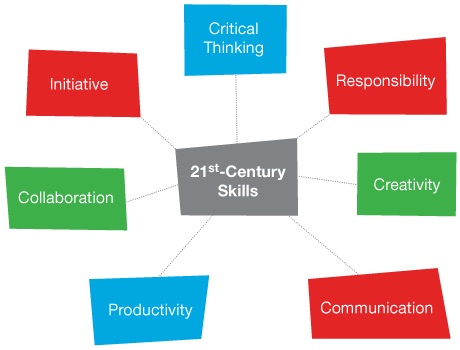
Overnight summer camp is more than Fun & Games. Sure, the plan is to have fun and make new friends. Research is showing that computers and robots will take away many jobs in the future. But what technology can not achieve, are the soft interpersonal skills. Living with others in a communal setting like camp provides campers to learn empathy, problem solving skills, leadership and independence.
The Top 10 Outcomes of Experiential Learning at Camp
“Camp is an experience every child deserves,” according to the American Camp Association (ACA), which accredits more than 2,400 camps serving more than 7.2 million children and teens. Specifically, ACA points to the "joy" kids experience when they make new friends and the inherent value in unplugging from their electronic devices, enjoying being out of doors, connecting with other young people, and learning about themselves.
And the ACA adds that, from a quantifiable perspective, the outcomes of a summer camp experience include the same skills that are needed in the 21st Century.
-
Friendship skills: Make friends and maintain relationships.
-
Independence: Rely less on adults and other people for solving problems and day-to-day activities.
-
Teamwork: Be more effective working in groups of peers.
-
Family citizenship: Gain attributes important to being a member of a family.
-
Perceived competence: Believe that they can be successful in the things they do.
-
Interest in exploration: Be more curious and eager to learn new things.
-
Responsibility: Learn to be accountable for their own actions and mistakes.
-
Affinity for nature: Develop feelings of emotional attraction toward nature.
-
Problem-solving confidence: Believe they have abilities to resolve problems.
-
Spiritual well-being: Develop purpose and meaning in life.
Gaining experience in these highly valued non-cognitive or soft skills will be life changers for today's youth. Cap provides a safe place to hone leadership and social entrepreneurship skills.
Often when we speak with parents we get the qustion "Is my child to old for camp" We then tell the parents why camp is good for children at any age. Below I found this article that I think really hits home of the benefits of overnight summer camp can benefit Teens. At Swift Nature Camp we have added a Leadership Program for campers that are 16 & 17 giving them hands on skills that will alst long into the 21st century.
10 Reasons Why High School Students Will Get A Lot From Summer Camp

Theodore Roosevelt reportedly said, “In any moment of decision, the best thing you can do is the right thing, the next best thing is the wrong thing, and the worst thing you can do is nothing.” While Teddy was likely speaking of deciding issues far weightier than what to do with high school students during the summer months, with the advent of spring, it’s a topic of discussion around more than a few family dinner tables.
My answer? The best thing to do is send high school students to summer camp!
While there are many reasons, I will focus on two important ones: favorable youth outcomes and developmental progress. For good measure, I’ll also throw in some important questions parents should ask when choosing a camp for teenagers.
The Top 10 Outcomes of Experiential Learning at Camp
“Camp is an experience every child deserves,” according to the American Camp Association (ACA), which accredits more than 2,400 camps serving more than 7.2 million children and teens. Specifically, ACA points to the "joy" kids experience when they make new friends and the inherent value in unplugging from their electronic devices, enjoying being out of doors, connecting with other young people, and learning about themselves.
And the ACA adds that, from a quantifiable perspective, the outcomes of a summer camp experience include the following.
-
Friendship skills: Make friends and maintain relationships.
-
Independence: Rely less on adults and other people for solving problems and day-to-day activities.
-
Teamwork: Be more effective working in groups of peers.
-
Family citizenship: Gain attributes important to being a member of a family.
-
Perceived competence: Believe that they can be successful in the things they do.
-
Interest in exploration: Be more curious and eager to learn new things.
-
Responsibility: Learn to be accountable for their own actions and mistakes.
-
Affinity for nature: Develop feelings of emotional attraction toward nature.
-
Problem-solving confidence: Believe they have abilities to resolve problems.
-
Spiritual well-being: Develop purpose and meaning in life.
Camps are also being recognized as incubators for the highly valued non-cognitive or “soft skills” and as places to hone leadership and social entrepreneurship skills.
Top 10 Questions Parents Should Be Asking About Teen Camps
Even if you’re convinced of the value of a summer camp experience for your teen, you may wonder, “How do I find the right one?” While there is no one-size-fits-all, there are summer camps that do not serve teens, camps that serve teens exclusively and camps that serve children and teens. When it comes to the latter two, here is some advice from the Better Business Bureau as to what to look for and what to ask.
-
Visit a camp before paying a deposit so you know where your child will be living, eating and sleeping. Check if the recreational facilities are in good repair.
-
Ask about safety, training and background checks for the staff.
-
Make sure you understand about any extra fees for activities or special trips.
-
Ask about two important stats that might give you a hint of whether the camp is a good spot: the camper return rate and the counselor return rate. If few kids or counselors are returning, it might be a red flag.
-
Check into background of the director and other leaders. Do they have the experience to deal with teens?
-
Ask about medical facilities and the procedure for emergencies.
-
Ask to see proof of appropriate insurance coverage.
-
Make sure you and your camper are comfortable with the rules on communication with home. Ask about strategies for combating homesickness.
-
Ask to talk to other camp parents or to campers. Don’t depend on the official line.
-
Look for camps that are certified by the American Camp Association and have to meet up to 300 nationally recognized standards.
Armed with the facts and the myriad of things to consider, you’re now ready for a moment of decision that will likely result in a life-changing summer for your teen.
 Written by Stephen Gray Wallace
Written by Stephen Gray Wallace
Stephen Gray Wallace is president and director of the Center for Adolescent Research and Education

As parents of a teen, I often worry about how todays childrens are fairing in this world of Social Media. I know I try to keep our son away from the adictive behaviors that the electronic world brings. The science says we and our kids are being manipulated by big business like the Googles, and all the other social media types. They are working dilegently to hook us and our kids on their sites. Here is a recent article of some of the downsides of Social Media on our children
The Effects of Social Media and How to Build a Healthy Relationship By Smart Social Team
More and more, students are gaining access to social media and devices at a younger age. According to research, 85% of parents with teenage children ages 13-17 report that their child have a social networking profile. While social media can be used positively as a tool to help with college admissions, career opportunities, and creating an online resume — more often students are making choices on social media that can have a negative impact on their future. In order for social media to be used in a positive way it’s imperative that parents and educators teach students about the effects of social media.
So, we asked 5 experts to share some of the negative effects of social media and how parents can teach students to have a healthy relationship with technology.
1. Social media can negatively affect students’ college and career opportunities
 Jonas Sickler, ReputationManagement.com, @RepMgmt_com
Jonas Sickler, ReputationManagement.com, @RepMgmt_com
The news says that teens are addicted to social media, and parents yell at their kids to unplug, but the real danger teens face with social media may not turn up until later in their lives—when they’re applying for college or looking for a job. So how can parents help their kids?
Parents should realize that their kids are already using social media. By attempting to restrict social media use, parents risk both the safety and online reputation of their children who will use the technology without the crucial guidance needed to keep them safe.
Even adults have a hard time navigating and understanding the privacy settings on their social media accounts, but we must make an effort to teach your kids how to properly configure aggressive privacy settings.
Public WiFi is dangerous. Parents must teach their kids never to send passwords or sensitive information when on free wifi networks. As expensive as it is to buy more data, it may be worth the cost to keep your kids off public WiFi networks.
2. Schedule social media time for students
 Lesley Vos, PlagiarismCheck, @LesleyVos
Lesley Vos, PlagiarismCheck, @LesleyVos
A lack of literacy and interpersonal skills are some of the most negative effects of social media. Teens know how to find and contact people online but fail to build effective communication offline. Constitution of social interaction breaks, the importance of face-to-face contacts diminishes, literacy collapses (poor spelling and grammar, no argumentation, and inability to put ideas into words are far from all consequences here), and teens simply don’t learn to build relationships. What to do? Schedule “social media” time, encourage offline communication with friends, delete social media apps from a phone, and forget about gadgets once you go to bed.
3. Blue light emitted from screens can cause teens to lose sleep
 Josh Ochs, SmartSocial, @JoshOchs
Josh Ochs, SmartSocial, @JoshOchs
Teens are notorious for staying glued to their devices late into the night. As a result, teens might not be getting enough sleep for optimal alertness and concentration during the day. Also, there’s another factor that might be causing all of us to be losing sleep: blue light emitting from our electronic screens. The light from our screens can suppress melatonin—a hormone that helps regulate sleep and wake cycles—and increase alertness (which is great in some circumstances, but not so much if you’re trying to sleep).
Limiting screen time at night is great in theory but can be hard to enforce. So, if you’re struggling to limit screen time at night, consider using these alternatives to unplugging all the screens in your house after dark:
- Wear “blue blocker” glasses before bed
- Use warm-light light bulbs
- Enable the Night Shift feature on iOS devices
4. Interacting on social media can cause students to lose social skills
 Heidi McBain, MA, LMFT, LPC, RPT
Heidi McBain, MA, LMFT, LPC, RPT
Social media can become an obsession and students can start to forget what’s most important in life. How often do we see a family out to dinner and everyone is on their mobile devices? The concern is that tweens and teens are so used to interacting with their friends on social media the importance of face-to-face interactions may start to get lost, and they might start to lose (or never learn) some of these social skills. Also, on social media people are often just putting their “best face” out into the world, meaning that people can see someone at an event having fun, but what’s really going on with them at a deeper level gets lost unless you see them or talk to them outside of the social media world.
Parents need to lead by example and set parameters around social media use. If you don’t want you child on technology all the time, then you need to model this behavior for them. Don’t use your phone while driving, plug your phone in when you get home and ignore it, and read on a separate device that doesn’t have all your social media apps on it. Also, start setting boundaries early/when they are young with technology and your children, and prepare for some push back. Our kids get one hour a day on their devices once all homework and chores are complete, they set a timer and when it’s done it’s done. They plug their devices in downstairs, and yes, we all have old fashioned alarm clocks that we use to wake up in the mornings! We are a little more lax on vacation when we’re in the car or on an airplane traveling, but when we’re out-and-about visiting people or seeing new things, all technology is put away so we can all enjoy the present moment together.
5. Social media encourages students to chase perfection
 Daniel Patterson, Patterson Perspective Inc., @cdmveep
Daniel Patterson, Patterson Perspective Inc., @cdmveep
Some negative effects of social media include:
- Establishing an over-reliance on 3rd parties to define personal happiness and success
- Chasing perfection: what others appear to be, do, like, etc as dominant personal bellwether for choices, decisions, and opinions
- Getting stuck in the audience: being so consumed with others’ lives that living their own life, having independent passions becomes secondary
How to build a healthy relationship with technology:
- Use moderation. Parents should limit screen-time, especially at night, to allow for sleep, detachment, and a mental reset
- Call a spade a spade: be direct and point out the inaccuracies or false optics on social media. Teach students to read through the fanfare and value quality content over showy content
- Lead by example: ditch the smartphone at dinner, implement phone free car rides/road trips, get outside and engage with your teen…I hear a lot of “teens need to go outside”…so show ‘em how it’s done!
- Empower children to experience moments without memorializing them. So, yes, this means even you might have to skip the selfie and taking phone pictures at your next outing…but try it! See how freeing it feels
So as as an Overnight Summer Camp Director, it is easy to see how going away from home and being out in the Northwoods of Wisconsin could solve all of the above issues, while reducing the conflict and nagging parents often create while trying to reduce their childs addiction to social media. So why don't more familes embrase summer camp? I think often parents only see camp as a way to give their children a fun time. Rather than seeing camp as a place to help their child develop interpersonal skills, like: team building, responsibiliry, communication, leadership and reducing their dependance on electronics. So much more than FUN happen at Overnight Summer Camp .
Camp Jobs Prepare you for the Workforce and for Life
Summer Camp Jobs have always been Fun, but have you ever wondered what's really going on and how it can be a resume builder for you? Recently, loads of research is coming out showing that camp jobs are give camp staff the skills that will be needed into the future. It is suggested that over the next 10-20 years automation will have taken many jobs, yet, the experts say, it is the soft skills that computers will have difficult time replaceing. Camp is all about soft skills. We will teach you how to use these soft skills while you practice your leadership skills.
Here are skills you will develop:
1) Oral Communication Skills - We will give you the opportunity to learn how to communicate effectively with people at every level of camp including campers, fellow staff, camp directors and parents. The goals of your communication will require you to change your tactic depending on your audience and the activity.
2) Critical Thinking Skills - We will help you think on your feet and make good sound decisions. After all you are responsible for the safety of children. Daily you will be become a problem solver. You will be asked to solve a myriad of issues from safety to how to get 10 children's teeth brushed and back in the cabin within 12 minutes. This is hands on practice at problem solving.
3) Interpersonal & Leadership Skills - We will train you how to model professionalism and compassion by managing a group of campers while contributing to the personal growth and development of each individual participant.
4) Collaborative Skills - You will receive on the ground, practical, real life training in how to work with a team and help build the culture of your camp community.
5) Creativity - You will develop innovative and fun ways to engage an audience of 2- 100 and implement alternate plans when faced with unexpected changes to the daily routine.
CAMP - THE REAL JOB WITH REAL EXPERIENCE
21st Century Skills - Communication, collaboration, critical thinking, creativity and contribution are important for success in today's world. At camp these skills are taught, developed and practiced. These skills are what today's employers are looking for.
Letters of Recommendation - Because we will know you better than any other employer you have had, we live with you. We can write amazingly specific letters of recommendation that will highlight the key traits your future boss is looking for.
Professional Development - Ongoing professional development sets you up to learn about your job while building a strong team with the people you will be working with, and offers support all throughout the summer.
Pay Check - Yes, you will get paid for your time at camp. We pay a base salary, experience bonuses, and a travel bonus. Since your room & food is included, your personal expenses are almost nil resulting in most staff leaving with most of their earnings.
Leadership - You will be supervising 8-10 children along with your co-counselor in real life situations...not simulated experience. You will hone your skills to be engaging and motivating as you make decisions, manage behaviors while adjusting your living ethics. These are skills you will take with you for life.
Networking - SNC has about 100 campers and 25 staff. All of these folks can and will become networking possibilities for you. Chances are we have contacts in your career.
Diverse & Global - At camp we provide campers and staff from around the world. It is always an exciting session when we have all 7 continents represented at camp. Seven you say? Yes, we have a stuffed penguin in the dinning hall.
Training & Certification - We train our staff in First Aid, Life-guarding and other certifications that will go with you from camp, and be represented on your resume.
Internships - It's easy to see how all these skills can be used in almost any college major. We can work with you and your school to create an internship that is relevant to you and your career. This is much more than getting coffee for the executive.
So there you have it. As you can see, being a camp counselor is the best of both worlds: being outside having fun while changing the world one camper at a time. Yet, it also can provide you with the skills you will need in your professional life and your personal life. Summer Camp gives you the skills to be a better person.




